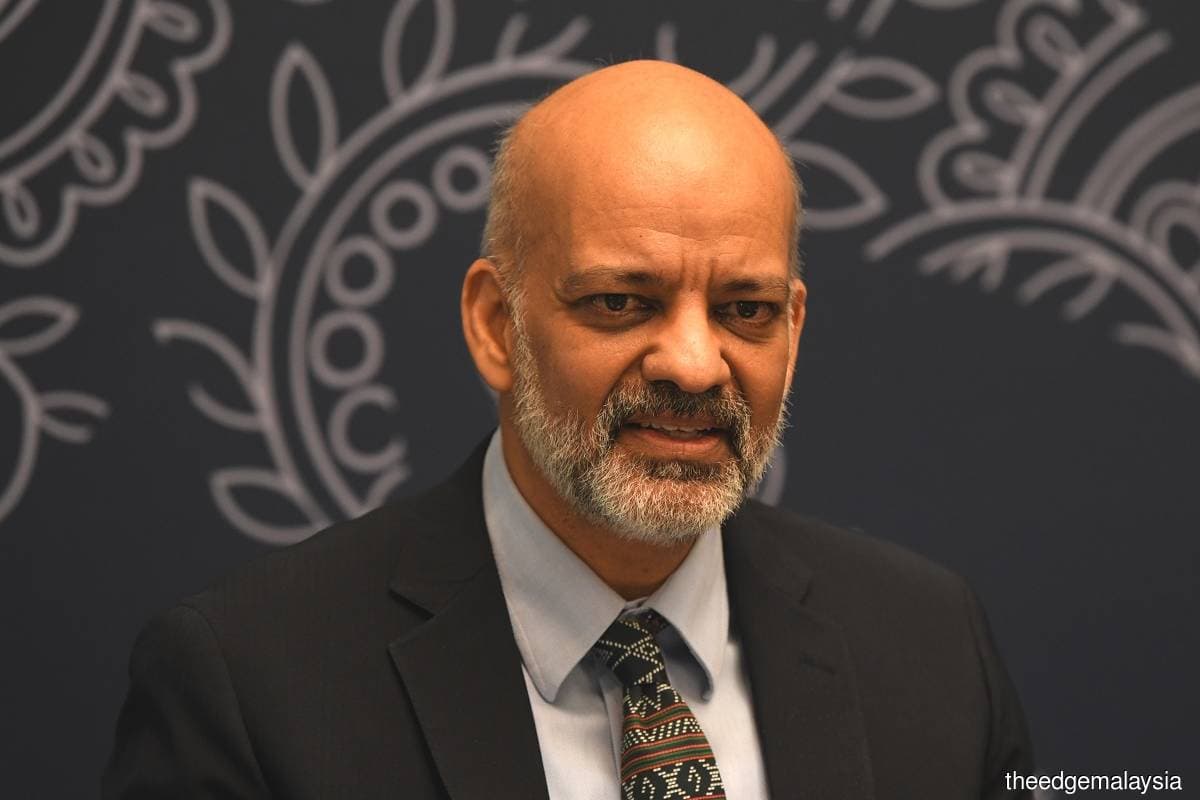
KUALA LUMPUR (Oct 2): Malaysia’s economy is required to open up its services sectors like digital, legal, accounting, logistics and transports, in order to continue attracting both foreign and domestic investments into the country, according to the World Bank.
“Malaysia’s investment-to-GDP (gross domestic product) ratio has been consistently coming down since the Asian Financial Crisis, from a high of over 40% of GDP, to below 20% today,” the bank’s lead economist for Malaysia Dr Apurva Sanghi pointed out at a media briefing on Monday.
“The point is that proactively liberalising services will remain key in boosting Malaysia’s investment and NIMP (New Industrial Master Plan 2030)’s success story execution. Services are an important input, even for manufacturing production.
“One of the reasons why Malaysia is behind the digitalisation curve compared to other comparable countries, is that there is still restricted entry of foreign participants in the telecoms and network sector. So, opening this up to more foreign participation, for example, could be helpful,” he added.
Apurva cited OECD’s Service Trade Restriction Index (STRI), pointing out that Malaysia is the eighth most restricted country when it comes to services, among over 50 countries.
The economist also said that the Malaysian government should draft its medium-term revenue strategy (MTRS) before planning for the optimal fiscal policies, going forward.
“We believe that it is high time [that] Malaysia has a proper MTRS, as you very well know, revenues as a share of GDP have been declining. Below 12% of GDP. The most important thing is to have a long-term fiscal view on what the Malaysian economy needs to spend on, and hence, how much more revenue it needs to mobilise,” he explained.
“So, right now, to the best of our knowledge, there is no target [to] revenue-raising. We know that revenues are low, below 12% of GDP, but how much do they need to be increased by? Is it 12.1%? Is it 13%? Is it 15%? Is it 20%? We don't know. And then, depending on the revenue gap between current state of revenues and what needs to be raised, then you can talk about the mixture of optimal instruments,” he added.
Apurva was responding to a question on whether Malaysia would require a broad-based consumption tax like Goods and Services Tax (GST) to mend the government’s weak fiscal position.
Therefore, to Apurva, the requirement of GST is dependent on the quantum of the government’s fiscal needs.
“Hypothetically speaking, raising revenues from the current, say, 12% to 12.1% [of GDP], then do you need GST? I don’t think so. But, if the revenue target is, say, 20% [of GDP] from 12%, then you need to have a more holistic view on, well, what is the optimal mix of instruments that will give me the most revenue,” he said.
Even with better revenue generating measures in place, Apurva said it is important for Putrajaya to show and signal that this additional income will be used productively.
“There’s no point in raising revenues if they are not going to be utilised efficiently [or] effectively. It’s like putting water in a leaky bucket,” he said.
“For example, expediting the Government Procurement Act would be a great start, because a lot of inefficiencies happen through public procurement in Malaysia,” he added.
Additionally, Apurva said streamlining the execution of the federal government budget is also crucial in ensuring optimal spending by Putrajaya, before going to the rakyat (people) to raise revenue through GST.
“If you look at the way Malaysia’s budget has been executed, it hasn’t exactly been optimal because of a lot of fragmentations and multiple ministries doing similar things. So, for example, we have about 17 agencies delivering over 170 social assistance programmes; we have 35 agencies alone for SME digitalisation.
“Unless the government signals to the rakyat that it is taking actions to manage spending better through procuring public services more efficiently, through executing the budget better, by addressing some of these fragmentation and implementation issues, just asking the rakyat to raise revenues — I don’t think that’s necessarily healthy,” he said.
